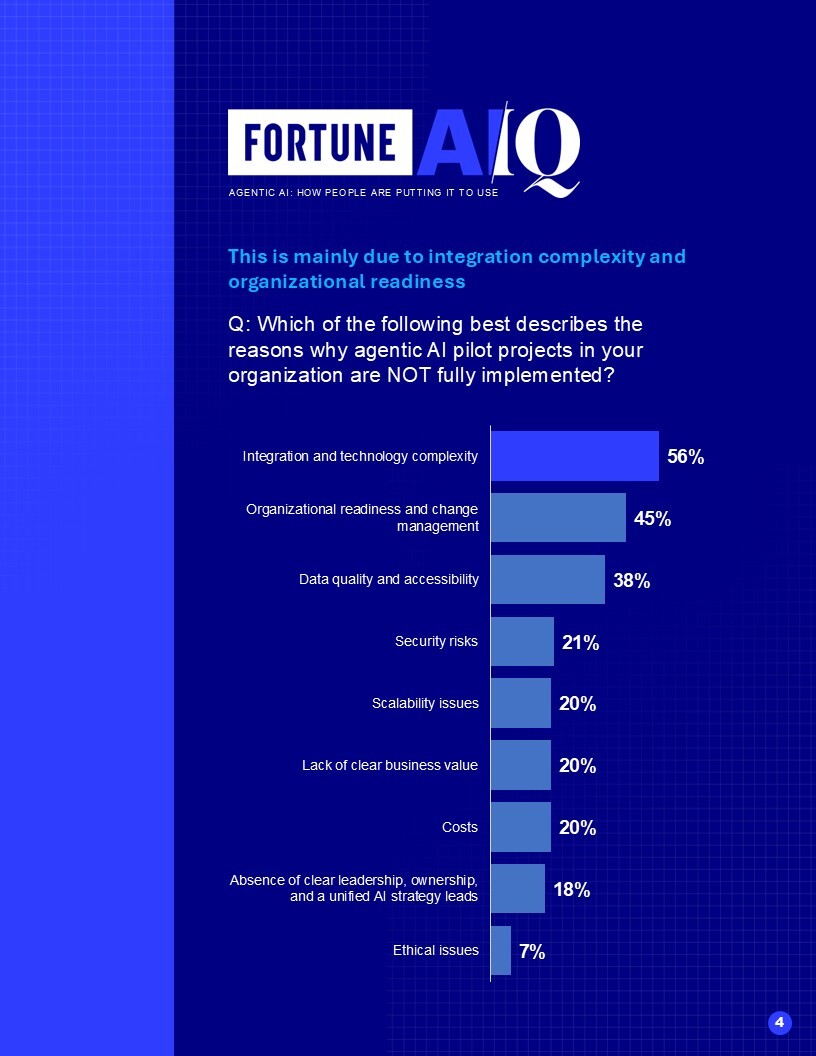The NFL and Microsoft have been sharing a technology playbook for 12 years. But the latest drive will feature more generative artificial intelligence.
On Wednesday, the pair unveiled a multiyear partnership extension that includes the deployment of 2,500 Microsoft Surface Copilot+ personal computers, devices with built-in AI features that will be available to the league’s 32 clubs, roughly 1,800 players, and more than 1,000 coaches and staff. Known as the NFL’s sideline viewing system, these tools are used to access game day images and data, both on the sideline and in the coaches’ booth.
What makes the AI PC unique is that it features a specialized processor called a neural processing unit, or NPU, which allows these devices to run AI workloads locally. Vendors tout these devices for their ability to run AI workloads more efficiently than if data was sent to the cloud or a mainframe server.
The NFL says a new feature on these devices, built with GitHub Copilot, allows users to pull critical information about the state of play on the field and use data to respond in close to real-time to craft the optimal attack or defensive tactic.
“There’s literally seconds in order to process information in between plays or in the coaches’ booth, so that the speed at which the device can do the AI processing is vital,” says Aaron Amendolia, the NFL’s deputy chief information officer. “We can’t go back and forth to the cloud. We can’t wait 30 seconds for your prompt to return a result.”
The prior generation of tablets used on the field allowed players and coaches to access offensive and defensive plays, as well as various camera angles to ascertain how players lined up in the field. In the booth, even with Surface devices, math was frequently done using a pen and paper. But with AI PCs, the NFL expects to automate the data that’s flowing to devices on the field, removing some of the manual toggling that was required previously, while also combining Excel and AI to perform calculations in the booth.
Technology has been a vital team player improving both the viewing experience for fans and play on the field. Throughout the course of the league’s century-long history, key milestones have included the first televised game in 1939, an instant replay system added in 1986, and more recently, Amazon Web Services’ analytics and machine learning deployed to better understand where players are more likely to get injured and react by designing new rules that can mitigate risk.
Amendolia says the league coaches teams on what solutions are best, but ultimately empowers clubs to make the most of their own IT purchasing decisions. The NFL is far more assertive in setting governance policies around key technology pillars like cybersecurity, data standards, and privacy.
There are some exceptions where the league will issue a mandate. The Surface tablets, as an example, are required and were first deployed over a decade ago to improve on-field communication after the NFL and Microsoft struck an initial $400 million deal in 2013. That investment allowed the league to finally retire printers and paper that were used to keep track of plays.
“The clubs are not choosing that technology,” says Amendolia. “They’re giving input into how that ultimate experience is.”
The latest Microsoft hardware integrates well into the NFL’s ecosystem that includes the productivity tools suite Microsoft 365, Teams, and a 5G private network built with Verizon. Sideline tablets are also powered by Azure’s cloud, though the NFL has embraced a multi-cloud approach and works with a variety of vendors, including AWS, depending on what suits each use case.
Amendolia says generative AI is a new layer of technology that builds upon the league’s past investments in machine learning. One use case that the NFL has embraced is a multimodal generative AI search tool that allows the sponsorship department to comb through mounds of data and pull up the exact assets they may need. Previously, this system relied on meta-tagging images, in which key words and descriptions were manually added to each image—a system that was not always reliable during a search query.
Externally, one application of generative AI debuted this year on OnePass, the league’s mobile app that manages tickets and shares event information with fans. Amendolia says that the NFL has made responses more conversational, answering queries with natural language when a fan wants to know the best place to get food in the stadium.
“The idea is that our fans are going to start to have their experience personalized through AI,” says Amendolia.
John Kell
Send thoughts or suggestions to CIO Intelligence here.
NEWS PACKETS
SoftBank to invest $2 billion into Intel as U.S. mulls government stake. Japanese firm SoftBank Group, which in December vowed to invest $100 billion in U.S. projects over the next of four years, announced it would invest in struggling chip maker Intel as the Trump administration is also considering taking a 10% stake in Intel to help revive the company’s weak position and bolster domestic semiconductor manufacturing. Investors cheered the news, but as The Wall Street Journal and other outlets note, Intel needs customers to fill its chip fabs.
Business software giant confirms data breach. Workday said that the company was targeted by hackers who stole an unspecified amount of personal information from one of its third-party customer relationship databases, according to TechCrunch. Workday, which serves more than 11,000 customers globally, didn’t explicitly rule out that any customer information was taken during the breach, but did share in a blog post published on Friday that “there is no indication of access to customer tenants or the data with them.” The bad actors utilized a common cyber method—contacting employees by text or phone and pretending to be from IT or human resources—with the goal of tricking those employees to give up sensitive personal information or account access. TechCrunch reports that while Workday didn’t share which third-party customer database platform was targeted, large companies including Google and Cisco have had data stolen from their Salesforce databases.
Big tech’s mega AI deals are leaving behind zombie startups. The race to lure top AI talent away from an ecosystem of startups into large tech giants like Meta, Microsoft, and Google is leading to a questionable future for the investors and employees that remain behind. CNBC reports on a few relevant examples, including at Scale AI, where 200 full-time employees were laid off just a month after it was announced that Meta announced a $14.3 billion investment in the startup and hired CEO Alexandr Wang to lead a new superintelligence lab. Founders and other top talent at Windsurf, Inflection AI, Adept, and Covariant have also been lured away, potentially leaving behind startups that could be less valuable in an initial public offering or acquisition, meaning there would be a lower windfall for venture investors and the broader employee base.
Palo Alto Networks founder and CTO retires. The cybersecurity company on Monday disclosed that Nir Zuk, has retired after founding Palo Alto Networks more than two decades ago and will be succeeded by Lee Klarich, who has served as chief product officer. Klarich initially joined Palo Alto in 2006 as an EVP and has served as CPO since 2018. The departure of Zuk was announced on the same day that Palo Alto Networks shared guidance for the new fiscal year, projecting annual revenue of about $25 billion. The news also comes a week after Palo Alto Networks agreed to a roughly $25 billion deal to acquire Israeli identity security provider CyberArk, by far the company’s largest ever deal.
ADOPTION CURVE
Most firms are exploring agentic AI, but a vast majority of pilots aren’t progressing. Two-thirds of organizations are either piloting or have fully deployed agentic AI, with around one out of every ten companies saying they have 10 or more projects underway, according to a survey of 171 Fortune AIQ Advisory Board business leaders (download the full report here).
But adoption is a far greater challenge, with a third of respondents reporting that 10% or fewer of their AI pilot projects become fully implemented. The biggest barriers that were reported include integration and technology complexity (56%), followed by organizational readiness and change management (45%), and data quality and accessibility (38%).
Which departments are the furthest along when it comes to AI agents? Perhaps not surprisingly IT leads the pack (60%), followed by marketing (51%), operations (49%), and customer service (43%). The three departments that were trailing on agentic AI, all below 15%, were legal, accounting, and travel.
Courtesy of Fortune AIQ Advisory Board
JOBS RADAR
Hiring:
– Airrosti is seeking a chief technology officer, based in San Antonio, Texas. Posted salary range: $200K-$230K/year.
– Sol de Janeiro is seeking a head of technology, based in New York City. Posted salary range: $250K-$300K/year.
– Copilot Money is seeking a head of engineering, based in New York City. Posted salary range: $230K-$260K/year.
– VisionSpark is seeking a head of technology, based in Owensboro, Kentucky. Posted salary range: $180K-$200K/year.
Hired:
– FedEx (No. 49 on the Fortune 500) announced the appointment of Vishal Talwar as chief digital and information officer and president of FedEx Dataworks, where he will oversee the shipping company’s digital transformation. Talwar previously served as senior managing director and chief growth officer of consulting firm Accenture Technology. FedEx’s prior CDIO, Sriram Krishnasamy, abruptly departed from the role in July following an internal investigation.
– Kohl’s (No. 261 on the Fortune 500) named Steven Dee as CTO, overseeing all technology and information platforms to oversee the retailer’s omnichannel business. Prior to joining Kohl’s, Dee led technology operations at athletic gear giant Nike and retailer J. Crew. He also has 12 years of leadership experience at professional services company Accenture, where he worked with consumer goods and retail clients.
Every Friday morning, the weekly Fortune 500 Power Moves column tracks Fortune 500 companies C-suite shifts—see the most recent edition.
– Cohere, the Canadian AI startup that raised $500 million last week, appointed Joelle Pineau as chief AI officer to oversee the company’s research and product development. Pineau joins Cohere after previously serving as VP of AI research at Meta. She is also a professor at Montreal research university McGill.
– Gray Media has promoted Bob Kroeger as CTO, effective immediately, succeeding David Burke, who retired at the end of July and will continue to advise the TV broadcasting company until the end of 2025. Kroeger joined Gray Media as CIO at the end of 2024 and prior to that, held technology leadership positions at WSMV (NBC) Nashville, WOIO/WUAB (CBS/CW) Cleveland, and WXIX (FOX) Cincinnati.
– Diakonos Oncology named Donna Rill as CTO, joining the clinical-stage biotechnology company after most recently serving as CTO of immunotherapy company Triumvira Immunologics. Rill also previously served as VP of manufacturing at Cell Medica and held senior technical and operational roles at Opexa Therapeutics, Baylor College of Medicine, and St. Jude Children’s Research Hospital.
– Storyful announced the appointment of Roy Robinson as chief product and technology officer, joining the social news agency after most recently serving as chief product officer at customer referral and influencer marketing company Mention Me. Storyful is a division of The Wall Street Journal publisher News Corp.
– Lincoln Investment Planning appointed Jason Estes as chief information and technology officer, joining the broker-dealer after most recently serving as chief information and digital officer at financial planning company First Command Financial Services.


